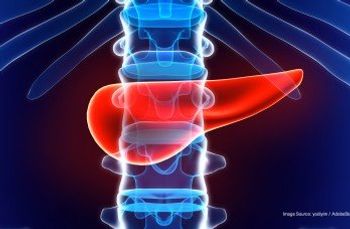
- ONCOLOGY Vol 9 No 1
- Volume 9
- Issue 1
New Signaling Pathway Involved in Cancer
Investigators at the University of California, San Diego (UCSD) School of Medicine have discovered a second pathway that the Ras proto-oncogene uses to cause cancer. The work sets the stage to develop new approaches for cancer treatment by
Investigators at the University of California, San Diego (UCSD)School of Medicine have discovered a second pathway that the Rasproto-oncogene uses to cause cancer. The work sets the stage todevelop new approaches for cancer treatment by blocking Ras'action before it can signal cells to proliferate. Ras isinvolved in a wide range of cancers, including stomach and lungcancer.
Normal development requires that cells respond properly to environmentalcues that signal cells to grow and divide. Ras, the productof the Ras gene, plays a pivotal role in responding tosuch signals, and overactivation of Ras is involved in cancer.
Normally, when it is time for a cell to reproduce, growth factorsbind to the cell surface and trigger the Ras protein, which startsa cascade of events that culminates in the expression of specificgenes in the nucleus. These genes cause cell growth and formationof new cells. After signaling the cell to grow, Ras turns itselfoff. However, if a mutation occurs in the protein, rasremains active and causes uncontrolled cell growth and cancer.
Previously, scientists had identified and concentrated on a singlesignaling pathway between Ras and the nucleus of cells. Now, agroup of scientists working with Michael Karin, PhD, UCSD Professorof Pharmacology, has discovered a second pathway.
"Ras is involved in so many actions--causing cells to grow,divide, and mature into specific types of cells. We were verypuzzled about how all this could happen through just one linearpathway. Now we know that there are at least two pathways, andthere could be more. We believe that there may be cross-communicationsbetween the pathways as well. This system is much more complexthan we thought," said Audrey Minden, PhD, a researcher involvedin the study.
The UCSD team found that Ras activates an enzyme calledMEKK, which goes through a series of steps to cause the activationof another enzyme called JNK, that finally stimulates a proteincalled c-jun. C-jun performs many jobs, including ordering cellsto grow and divide.
In the pathway originally identified by other scientists, Rasactivates a protein called Raf-1, which leads to activation ofan enzyme called ERK. ERK in turn helps signal cells to grow bystimulating production of a protein called c-fos. C-jun and c-fosmay bind together to form another protein called AP-1.
AP-1, as shown by the Karin group several years ago, stimulatesexpression of genes required for cell growth and proliferation.In this way, two different branches of the Ras pathway, throughdifferent mechanisms, may be involved in regulating cell function.
Articles in this issue
about 24 years ago
Diagnostic and Management Issues in Gallbladder Carcinomaalmost 30 years ago
Taxotere Found Active Against Advanced Non-Small-Cell Lung Cancerabout 30 years ago
Monica Morrow on the Pros and Cons of Stereotactic Breast Biopsyabout 31 years ago
The Breast Implant Controversy: Psychosocial Implicationsabout 31 years ago
Colony-Stimulating Factors Shorten Severe Neutropeniaabout 31 years ago
Diagnostic and Management Issues in Gallbladder Carcinomaabout 31 years ago
Current Management of MeningiomasNewsletter
Stay up to date on recent advances in the multidisciplinary approach to cancer.












































